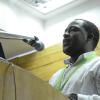In the effort to address global sustainability challenges affecting people, prosperity, and planet, in 2015, Sustainable Development Goals (SDGs) were adopted by the global community to replace the Millennium Development Goals (MDGs). SDGs have recognized women’s land rights as opposed to its predecessor, MDGs. Of over 230 indicators, three are on women’s land rights and seven are generally on land rights. This is a milestone, compared to having none in the fifteen years of MDGs, which the land community continues to celebrate.
In the same year, the African Union (AU) adopted Agenda 2063 as the continent’s new long-term vision for the next 50 years. Both of these international guides require States to commit to the protection of women’s land rights and tenure security.
The current situation shows that female farmers in Tanzania own significantly less land compared to their male counterparts. Only 24% of women report that they own land either alone or jointly with someone, while a mere 9% of women have sole ownership of a house or land, according to the National Bureau of Statistics of Tanzania.
Tanzania has 70% of female employment in agriculture according to 2016 World Development Indictors. Thus, women’s access to, use of and control over land is an important aspect of realizing sustainable livelihoods and human progress in the framework of Tanzania’s Five-Year Development Plan 2016/2017-2020/2021 (FYDP II) and Tanzania’s plan to implement the SDGs.
Progress has been made
In Africa, the Monitoring and Evaluation of Land in Africa (MELA) project which is managed by Land Policy Initiative (LPI) and International Food Policy Research Institute (IFPRI) is currently piloted in 12 countries from East, Central, West, and Southern Africa to track progress in the implementation of the AU Declaration on land issues and challenges.
Efforts have been made by the Government of Tanzania and Civil Society Organizations (CSOs) toward achieving the SDGs and Agenda 2063. There are ongoing initiatives to reform marital and inheritance laws, the Customary Law Declaration Order (1963) and the National Land Policy (1995) to address some of the challenges hindering women from enjoying their land rights.
However, more needs to be done to address the reform agenda which does not address women’s right sufficiently to inherit land, allocate more land to women, and create reliable and accessible land registries that reflect these rights and claims.
A concerted effort is needed to build the capacity of national CSOs, land-related governance agencies and ministries, national bureaus of statistics, and the national multi-stakeholder platform to establish robust systems to track, collect data and report on specific land indicators.
With this goal in mind, Landesa, a global non-profit organization working on land tenure security, is implementing a project to build the capacity of CSOs, statistical agency and government officials on women’s land rights and SDGs.
Landesa has identified strong land rights advocacy organizations and provides them with training on women’s land rights, as well as training on creating an effective advocacy campaign to advance women’s land rights within the framework of the SDGs. Additionally, the project is training statistical agencies and government land officials on the importance of women’s land rights and why data can be a useful tool to advocate for change in the land sector.
Way forward
There are still many challenges remain to establish monitoring systems, collect and track data, and report the data collected, ranging from legislative and institutional constraints to customary, limited scope of national indicators and financial barriers hindering these efforts. Therefore, a stronger public-private alliance needs to be forged in the spirit of “leaving no-one behind” to advocate for a much stronger tenure security for women and men in Tanzania and around the globe.
Already, at the global level, the “Friends of the Custodians,” comprising donors, CSOs and funders, have shown the way to help coordinate action across different groups to ensure that the SDG land indicators are up and running by 2020.
At the country level, the opportunities provided by the 2030 Agenda are huge and the demand for work will likely surpass the sector’s current capacity. For this reason, Landesa chose to engage at the country level by piloting replicable, scalable and sustainable models to convene and equip local stakeholders so that they can make the most of the advocacy and accountability opportunities provided by the 2030 agenda.
Landesa’s aim with this country-level work is to generate discussions and exchanges that encourage and support the government to take responsibility, act, more effectively, and/or more swiftly to support women’s land rights.
Landesa will work through convening events that bring these myriad government actors (including those responsible for the data generation) to the table, together with a network of CSOs who are fully aware of the agenda and equipped to leverage it.
Now, the challenge will be to ensure that this collaborative approach comprising donors is cascaded to the national level. A women’s land rights and SDGs multi-stakeholder platform, which Landesa will establish, is one of the ways to foster collaborative approach at the national level.
Godfrey Massay is an Advocacy Manager in Tanzania for Landesa, an international land rights organization.
This blog was originally posted by SDGFUNDERS, a service of Foundation Center, and is posted here with the permission of the author.



